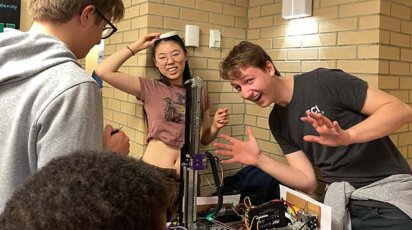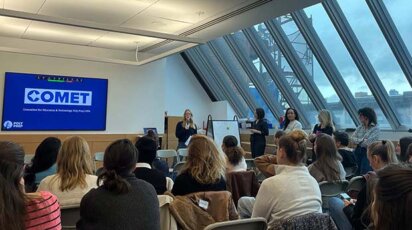News
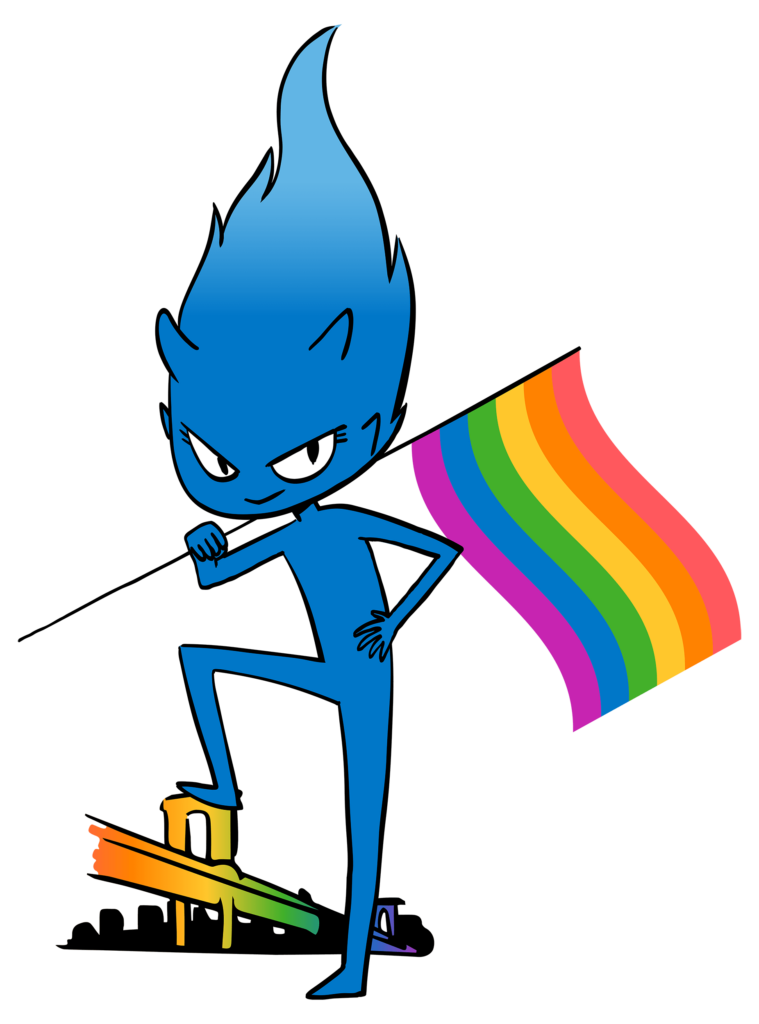
Everyone deserves to live their lives openly, honestly, and fully, without fear of discrimination, judgment, or harm. All LGBTQ+ peoples have a distinct story of “coming out” or “inviting in,” and there is no right way or time to do it. The term “coming out” has traditionally been used to describe the process of LGBTQ+ peoples’ disclosure of their sexual orientation or gender identity with other people. As said eloquently by the Trevor Project, “The truth is that there is no one way to come out or be out. There may be certain people in our lives with whom we want to share our sexual orientation and/or gender identity, and there may be others with whom we know that we do not feel comfortable or safe sharing. This is more than okay!”
Coming and being out is an extremely personal and ongoing process (sharing with different people at different times), but it isn’t about the people we come out to, it’s about our personal right to live our lives by our own terms, and allowing others to share in that knowledge.
Some now feel more comfortable with using the term “coming in” or “inviting in” instead of the traditional “coming out.” These newer terms are meant to shift the focus back to the individual person, instead of the people they may share their sexual orientation and/or gender identity with, and puts emphasis on a collective effort to create safer, more welcoming environments where people can be themselves freely. As the Human Rights Campaign shares on their National Coming Out Day page, it’s important to reflect on the social conditions that make the process of coming out seem obligatory, “it gives the impression that people who don’t identify as cisgender or heterosexual are hiding something from society, rather than acknowledging how homophobia and transphobia create an unwelcoming environment.”
About National Coming Out Day
National Coming Out Day (NCOD) was organized by Jean O’Leary and Dr. Robert Eichberg in 1988. According to Cornell University’s online record, 18 states participated the first year, 21 the next, and all 50 by 1990. The day was first celebrated on the one-year anniversary of the 1987 National March on Washington for Lesbian and Gay Rights. In 1993, the National Coming Out Day organization merged with the Human Rights Campaign and created the National Coming Out Day project in 1996, in order to advance the resources available to LGBTQ+ people living openly at home, at work, and in their communities.
National Coming Out Day is an important day to increase visibility to LGBTQ+ communities, which promotes pride and acceptance for being openly LGBTQ+ and encourages honest dialogue about the ongoing challenges of identity-based violence and oppression. According to Stonewall.org, NCOD should also be a day where the freedom to evolve and change, to proudly self-express this inner knowledge, and to share who you are in spaces that have worked consciously to become welcoming to LGBTQ+ identified people, is honored: “It’s a day to celebrate the beauty of being true to yourself, for having the courage to share an important part of your life with others, and for celebrating those who may come out to you. Rather than being perceived as… confessing something, we should see coming out as a marker of coming into your identity, and allowing others to share in that knowledge. National Coming Out Day should also be a day to acknowledge the difficulties of coming out, and to remember that it’s still not something all LGBTQ+ people can safely do.”
Inclusion & Affinity Groups at Poly
An important part of student life at Poly is nurturing a strong sense of self and community, exploring the issues that matter most to you, and finding the opportunities that provide a platform for discovery, growth, and purpose. In the Lower School, students in Kindergarten through Grade 4 may join the United Voices affinity group for students of color, led by Lower School educator and facilitator Kim Davis. The affinity group meets throughout the year and provides students a trusted space to examine the world around them and share their personal experiences. Each year, the Prospect Park and Dyker Heights campuses come together to march in the Brooklyn Pride parade with a large blue Poly Prep banner held by school leaders, families, and smiling students.
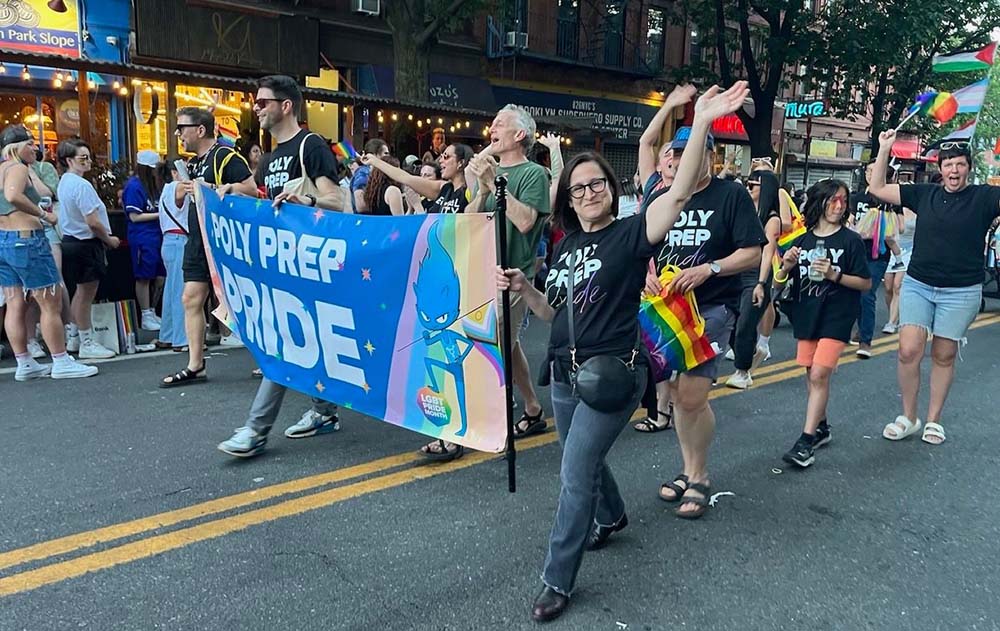
As Poly students grow and move to the Middle and Upper School, there are a plethora of opportunities that provide identity-based education and student leadership. Assemblies led by LGBTQ+ activists like Harvard graduate and bestselling author Schuyler Bailar offer students in affinity groups like the Middle School Gay Straight Alliance (GSA), Upper School GSA, Queer, Black, Indigenous, People of Color (QBIPOC), and more, to work collectively with faculty, staff, and other experts leading change to raise awareness of LGBTQ+ issues at Poly, to empower students through community-engaged work, positively impact student life for LGBTQ+ students and their families at Poly.
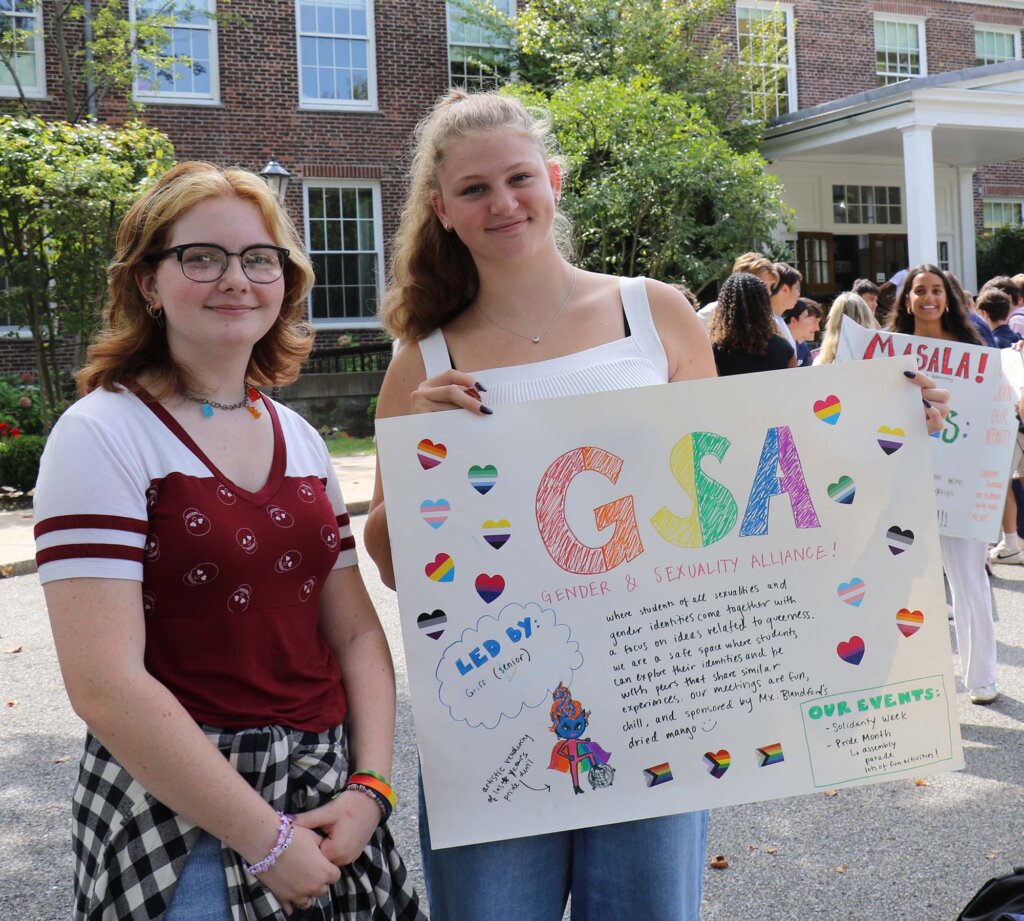
The Counseling Team at Dyker Heights
Support for LGBTQ+ students extends beyond rich academic and student life programs, it is also central to student support services and the mental health resources provided to students. The counseling team at Dyker Heights wants all students to know that their exploration of their gender and sexual orientation identities is a normal and important part of growing up: “Given high school is such a pivotal period of time for students to craft and come to terms with their identity, the counseling team is proud to be a resource for anyone at any stage of this process. For students celebrating their identity, let us celebrate with you! To students questioning or seeking to discuss their gender identity and/or sexual orientation, we’re here to be as supportive as we can be—and that might look different for each individual student. Whether students need a quiet space to process, an in-person sounding board, or access to resources and tools to assist them in understanding who they are, the counseling team is here and eager to offer our support.”
Upper School GSA
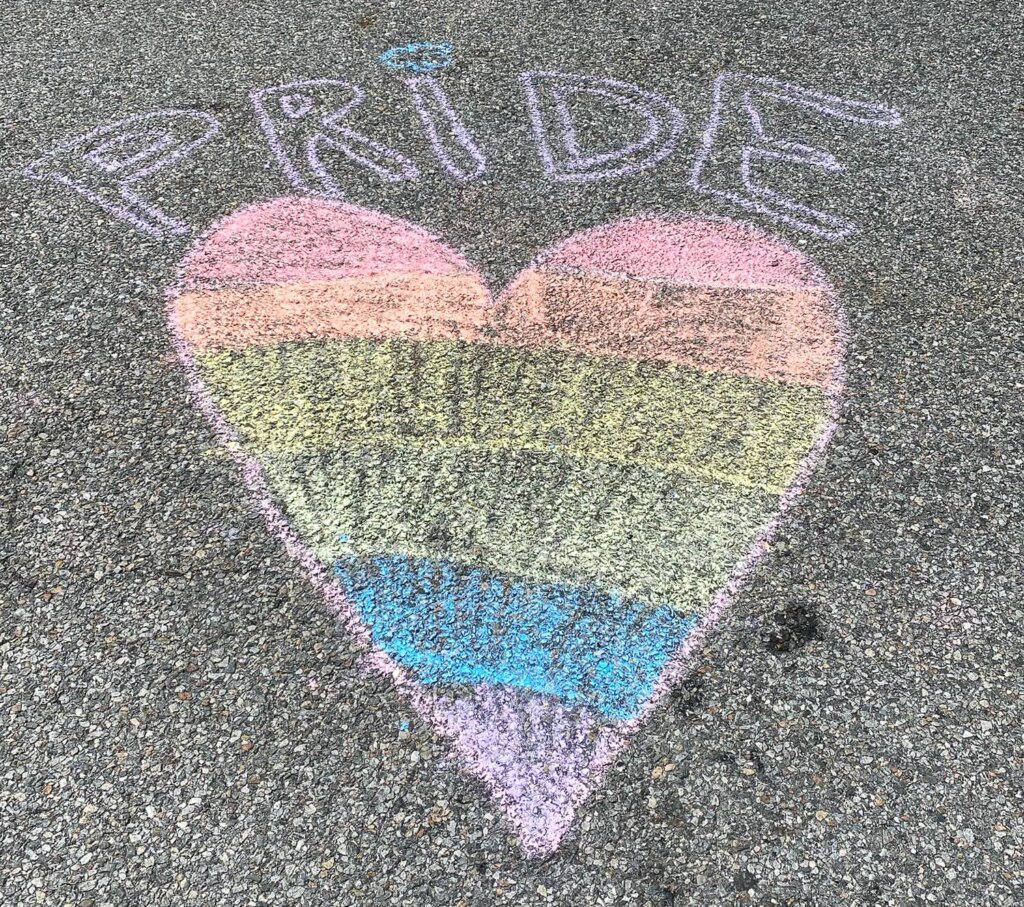
Upper School GSA advisor Caleigh Forbes-Cockell reflects on the importance of celebrating queerness beyond designated holidays, of elevating LGBTQ+ stories to encourage empathy and whole-community support, and to celebrate queer folks’ right to share who they are with the people they trust. While NCOD is an important celebration of this milestone, the reality is that LBGTQ+ people are ever-emerging as personal parts of their lives are shared with others. “At Poly, any day that celebrates an aspect of queerness or queer culture is important! It’s critical to both celebrate our students who have made the brave choice to come out as well as to serve as inspiration for students who might not be in a position to come out or might still be struggling with their identity. I’m so proud of the students who show up to GSA every week to share a piece of themselves with each other and with us as advisors. Our students’ coming out stories are stories of courage, self-reflection, and truth, and I hope the Poly community takes some time to think about the experiences of our LGBTQ+ peers and students as they encounter these stories. I hope that the exchange of their coming out stories, and stories like theirs, engender (no pun intended) more empathy for the queer community at Poly and beyond.”
“Personally, one of the reasons that I feel National Coming Out Day is so important is because it celebrates what for many of us is a never-ending process of coming out to each new person we meet. Coming out is often seen as a big, one-time event, but it happens in so many ways. Anytime a queer woman mentions her girlfriend to a new person, for example, or if a trans person happens to mention a childhood memory from before they transitioned, making it clear that they once moved through the world in a different body. Having a day to celebrate the action of coming out helps remind us all of this hurdle and milestone in queer people’s lives.”
GSA Faculty Advisor and Admissions Counselor Caleigh Forbes-Cockell
Counseling Team Contact Information:
- Dalia Gold, Clinical Director of School Counseling, Lower School
- Tynesha Wright-Lindo, Middle School Counselor
- Benjamin Marks, Upper School Counselor
- Anais Kingsberry, Upper School Counselor

